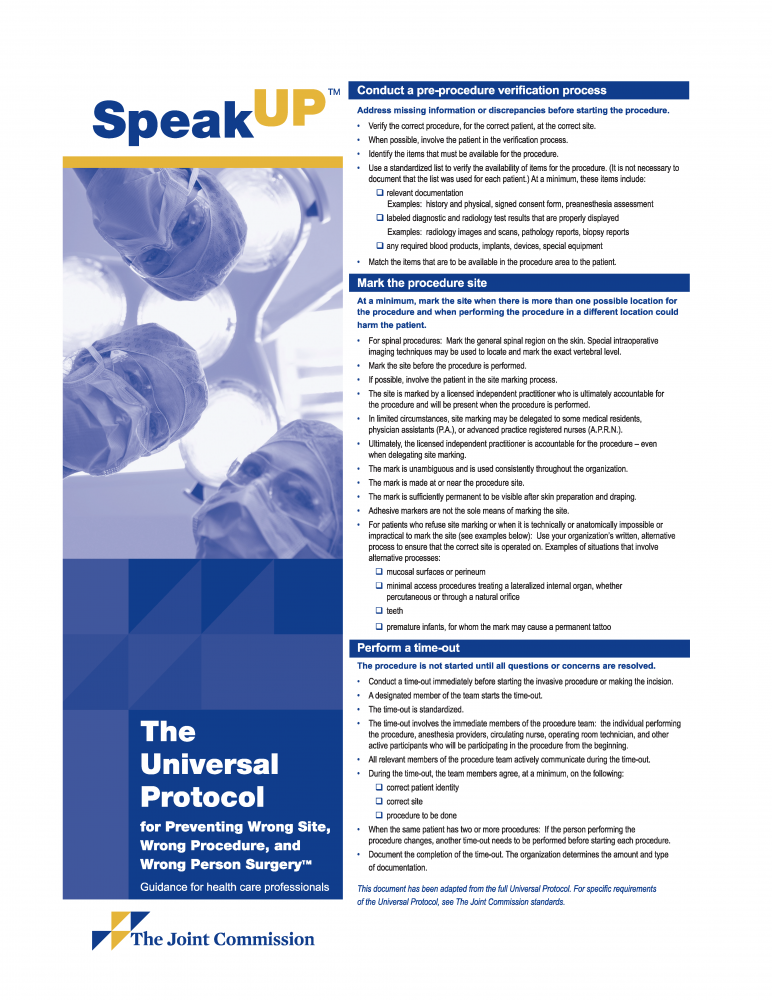
Few medical errors are as indefensible as those involving patients who have undergone surgery on the wrong body part, undergone the incorrect procedure, or had a procedure performed that was intended for another patient. These “wrong-site, wrong-procedure, wrong-patient errors” (WSPEs) are termed “never events” by the National Quality Forum and “sentinel events” by the Joint Commission– errors that should never occur and indicate serious underlying safety problems. In addition, the Centers for Medicare and Medicaid Services (CMS) will not reimburse hospitals for any costs associated with WSPEs. Yet, these “never events” continue to occur.
The official website of the Department of Health & Human Services, in an article updated September 2019, noted that although one seminal study indicated that such errors occur in approximately 1 of 112,000 surgical procedures, that estimate only included procedures performed in the operating room; if procedures performed in other settings (ambulatory surgery centers and interventional radiology suites, for example) are included, the rate would be significantly higher. A study conducted using Veteran Affairs data found that fully half of the WSPEs occurred during procedures outside the operating room.
Root cause analyses of WSPEs consistently reveal communication issues as a prominent underlying factor. The Joint Commission’s Universal Protocol attempts to address these communication issues through redundant mechanisms for verification of the correct site, procedure, and patient as well as site marking, checklists, and “timeouts.” However, even when Universal Protocols are implemented, errors can still happen well before the patient reaches the operating room, a timeout is rushed, or production pressures contribute to errors during the procedure itself. As the above-cited article points out, ultimately, preventing WSPEs depends on a combination of system solutions, strong teamwork, a safety culture, and individual vigilance.

The contents of The Sentinel are intended for educational/informational purposes only and do not constitute legal advice. Policyholders are urged to consult with their personal attorney for legal advice, as specific legal requirements may vary from state to state and/or change over time.